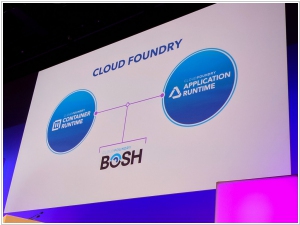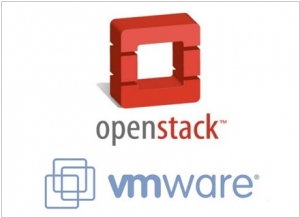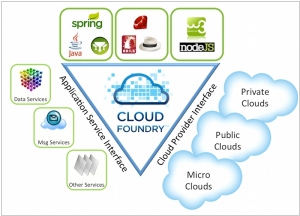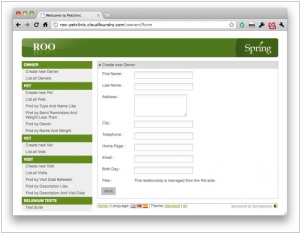Cloud Foundry is #3 in Top 10 Private Cloud platforms
Open Source Cloud Application Platform that makes it faster and easier to build, test, deploy and scale applications, providing a choice of clouds, developer frameworks, and application services. It is an open source project and is available through a variety of private cloud distributions and public cloud instances.
Positions in ratings
#3 in Top 10 Private Cloud platforms
Alternatives
The best alternatives to Cloud Foundry are: Amazon Web Services, Heroku, OpenStack, Microsoft Azure, Terraform
Latest news about Cloud Foundry
2017. Cloud Foundry adds native Kubernetes support

Cloud Foundry, the open-source platform as a service (PaaS) offering for enterprise, made an early commitment to Docker containers. However, with the introduction of Kubo, a tool donated to the project by Pivotal and Google last year, Cloud Foundry gained a new capability to rapidly deploy and manage a Kubernetes cluster. Kubernetes, an open-source container orchestration tool backed by Google and emerging as the industry standard for container management, is now an integral part of the Cloud Foundry platform under the new name "Cloud Foundry Container Runtime." The collaboration between Google, Pivotal, and Cloud Foundry in developing this integration comes as no surprise.
2012. Surprise! VMWare has joined OpenStack

Recently we found out that the open cloud platform alliance OpenStack includes several members from EMC. It was a surprise, because EMC owns VMWare - the direct competitor of OpenStack. We thought that it was a little misunderstanding in the Swedish family EMC-VMWare. But this wasn't the last surprise in this story. In the end of the last week, VMWare personally became the "Gold member" in OpenStack. (Recall, OpenStack was founded two years ago in order to struggle against the dominance of Amazons's public cloud and VMWare's data-center cloud management systems). Together with VMWare two more giants: Intel and NEC joined OpenStack on Friday. So now, on the cloud platform market we have the confrontation: Amazon vs "Everyone else". You may think that the forces are not equal, but ... ***
2011. SaaS vendors using third-party PaaS as their own

An interesting new trend is emerging: SaaS vendors start to use third-party PaaS services as platforms for their own clients and partners. Let's first consider the ordinary situation. For example, there was such SaaS provider as Salesforce. And it provided the online CRM system. The system was growing but the customers wanted more and more new features. Then Salesforce management thought: "we can't implement so many features, and it's not right to make the system too complicated. Let's better create a (PaaS) platform, and let our customers and partners create add-on apps and functions themselves. That's how Force.com appeared. And many others SaaS vendors headed the same way: Google, NetSuite, Intuit, Box.net ... But not all SaaS-providers are so mighty to create own PaaS platform. Or maybe creating own PaaS-platform - is not the smartest option. Why not use one of the existing PaaS-services, such as Force.com? ***
2011. VMware wants to revolutionize PaaS market

We have already noted that PaaS (Platform as a Service) - is the future of cloud platforms. For now the PaaS market is dominated by Salesforce (Force.com), Microsoft (Windows Azure) and Google (Google App Engine). Recently Amazon also entered this space with AWS Elastic Beanstalk. Of course VMWare also has its own plans regarding this market. Like Amazon, VMWare still paid more attention to another cloud technology - IaaS (Infrastructure as a Service). Its product vCloud enables service providers and enterprises to create cloud platforms that mimic Amazon EC2. But, frankly speaking, VMWare hasn't achieved great success in the IaaS-space so far, because it didn't offer something revolutionary. Having analyzed these mistakes, the company is now entering the PaaS market. And here it really wants to make a revolution. ***


